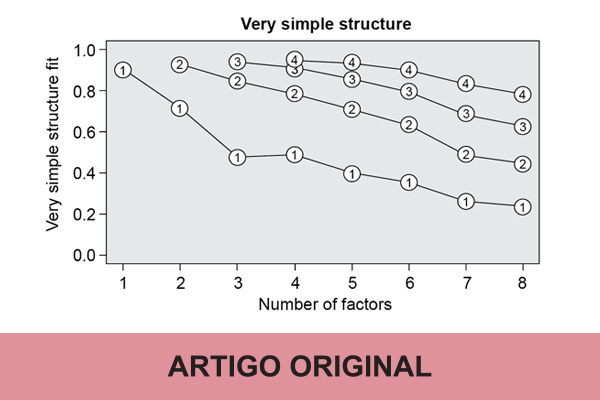SOCIAL MEDIA
Portuguese Medical Association's Scientific Journal

Introduction: Following the outbreak of the disease caused by the novel coronavirus it was necessary to increase the non-face-to-face care activity through alternative means such as teleconsultation in primary health care. The adjustment to a type of remote consultation could have generated anxiety among family physicians. The main aim of the present study was to develop and validate a scale to assess the anxiety of family physicians during teleconsultation.
Material and Methods: Observational, cross-sectional study involving a sample of family physicians working in Portugal. An online survey that evaluated anxiety in teleconsultation was developed.
Results: A total of 359 valid responses were included in an exploratory factor analysis, after determining the number of factors to retain. A four-factor structure was detected with loadings ranging overall, from 0.44 to 0.98. Correlations between factors ranged from 0.42 to 0.58. Exploratory factor analysis results varied between good and very good fit, with chi-square/df result = 2.448, root mean square error of approximation (RMSEA) = 0.062 [90% CI = (0.053, 0.073)], root mean square of the residuals (RMSR) = 0.030 and Tucker Lewis index (TLI) = 0.931. Composite reliability was higher than 0.7 for all factors and average variance extracted was close or above 0.5 for the extracted factors, confirming convergent validity. McDonald’s omega (ω) = 0.95 suggested the presence of a second-order factor, and thus a global measure for assessing anxiety during teleconsultation. Concurrent validity results were good, with correlations ranging from r = -0.277 to r = -0.393 with General Self-Efficacy scale (GSE) and r = 0.302 to r = 0.547 with Depression Anxiety Stress scales (DASS). Moderate correlations found between DASS and the dimensions of AnsT-19 suggest that AnsT-19 is capturing anxiety from the teleconsultation point of view. AnsT-19 factors and total score were significantly associated with gender, experience as a family doctor, psychotropic medication during the pandemic period and pre-pandemic experience of teleconsultation, indicating good construct validity. The limitations of the study are related to the convenience process, the use of an online survey and self-reported measurements.
Conclusion: AnsT-19 is a valid instrument to assess the anxiety of family physicians during teleconsultation.